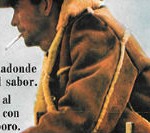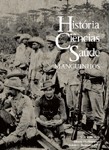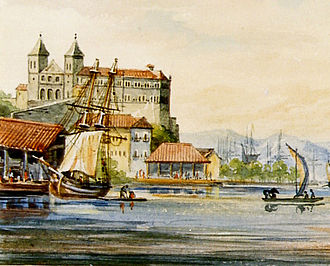8 March, 2018

Susan M. Reverby is the Marion Butler McLean Professor Emerita in the History of Ideas and Professor Emerita of Women’s and Gender Studies at Wellesley College.
To celebrate the International Women’s Day, we interviewed Dr Susan M. Reverby, Professor Emerita in Women’s and Gender Studies at Wellesley College, where she taught for 34 years.
Throughout her carrier she sought to combine her interests in women’s studies, health activism, race and the ethics of public health.
Susan is best known for her prize-winning work on the Tuskegee Syphilis Study and her exposure of the U.S. Public Health Service’s Inoculation studies on sexually transmitted diseases in Guatemala.

The forty-year Tuskegee Syphilis Study, which took place in Tuskegee, Alabama, has become a profound metaphor for medical racism and ethics.
In this interview to our blog she talks about health activism and her current work on a biography of AIDS physician and former political prisoner Alan Berkman.
1- At your University you have worked on Women’s Studies. Could you please say something about the dialogue between women studies and history of medicine in the US?
Many of us who became intrigued with the history of medicine in the 1970s and early 1980s came out of women’s history. Very early on it was clear that we could not understand what happened to women without focusing on the role that medicine and science played in a secularizing society in defining what was “natural” about womanhood.
As more women’s studies scholarship focused on sexuality, reproductive justice, and the body, it was a natural that historians of medicine should be involved in these discussions. My position at Wellesley College, where I taught for 34 years, was in Women’s Studies not history.
So it forced me to think about gender in multiple ways. In terms of my work, I was originally trained as an undergraduate in labor history. I worked for a left health think tank in the early 1970s and was a women’s health activist, and then went to graduate school.
My dissertation, then book, focused on nurses since it combined all my interests: health, women, workers and activism.
2 – Could you explain your campaign to recognize the role of women slave subjects in the history of New York gynecology?

J. Marion Sims used enslaved African-American women as experimental subjects in his surgical research.
When I was teaching my course on the history of American health care, I often had my students think about Dr. J. Marion Sims, the physician considered the “father of American gynecology” because of his invention of the speculum and his work on fistulas.
Feminist medical historians have been criticizing Sims for decades for his work because he operated, without anesthesia (although this was common) on slave women only known as Anarcha, Betsey and Lucy.
Another physician/historian, Dr. L.L. Wall, who has worked in modern day Ethiopia on saving women with fistulas, has been defending what Sims did. I had my students read the critiques of Sims and then Wall, and we always discussed how to think about what Sims did. For years I said when I retired I would work to get Anarcha, Betsey and Lucy recognized.
For several years now, groups in East Harlem in New York City have been trying to get Sims’ statute, which sits on 5th Avenue and 103 Street in Manhattan across from the New York Academy of Medicine, removed.
I have been involved in writing about why the statute should come down in various publications. I am working with an NGO in Boston called the Resilient Sisterhood Project, run by a former student of mine to provide health care to African American women with reproductive health needs, to make people aware of the “mothers of gynecology” and their contribution. Most recently, the New York Mayor’s office has moved to have Sims’ statute taken down.
3 – It appears that the field of health activism is growing? What are the main contributions of American historians of medicine to the history of health activism?
Many of us have been teaching courses on the history of health activism that traces its beginning in the 19th century into contemporary times. Both the women’s health movement and then the AIDS activist movement became really crucial.
In our courses, we have tried to show how health activists—as health care practitioners, patients, and family members—have sort to make the health care system more just and equal. Some of us, like me for example, also came to the history of medicine from our experiences as health activists.
4- Could you please describe your current work on Alan Berkman (1945-2009) a global health physician who fought to get anti-retrovirals for HIV/AIDs into Global South you are writing now?
I grew up in a small town in upstate New York State with a man named Alan Berkman. We went to Cornell at the same time when I considered myself a radical anti-war activist and Alan was a pre-med on his way to medical school and what he thought would be a typical physician career.

American physician and activist Dr. Alan Berkman (right), who spent eight years in prison for armed robbery and explosives possession, discussing AIDS in Tanzania. Credit Poul Olson, NY Times.
However, he became politicized in medical school at Columbia University and was part of very militant anti-imperialist political groups. By the 1970s and early1980s, he was involved in supporting various kinds of armed struggle, went under FBI lines to support Native American protestors at Wounded Knee, and worked with various Puerto Rican and Black self-defined revolutionary groups.
He was indicted for not reporting a gunshot wound when a group of his comrades, with members of the Black Liberation Army, tried to rob a Brink’s armored truck and killed two policemen and a Brinks’ guard in 1981. Two years later he went underground and was accused of doing non-lethal bombings. He was captured in 1985, did eight long years in prison, many of them in solitary, and barely survived two bouts of Hodgkin’s’ lymphoma.
When he got out in 1992 he became an AIDS doctor in New York for a decade, then worked at Columbia University’s Public Health School. He became involved in global health work, especially in South Africa and the Dominican Republic. He was the founder of Health GAP, the Health Global Access Project that fought successfully to change U.S. trade policy to allow generic AIDS drugs into the Global South.
He trained another generation of Global South health activists and researchers when he was Columbia. He succumbed to his sixth bout of cancer in 2009, but is remembered as an amazingly caring man whose work was always for justice.
As one of his colleagues put it at his memorial service, it was difficult to hire him at Columbia: he dropped out of residency and had a ten-year gap in his resume. But he had the perfect resume for South Africa: he had been a political prisoner of the United States! I am finishing his biography now, having been given access to his papers, his unpublished autobiography, and the remembrances of many of his comrades and those whose lives he touched in extraordinary ways across the globe.
Related articles:
Cueto, Marcos. Activismo estadounidense en la historia de la salud internacional. Hist. cienc. saude-Manguinhos, Set 2016, vol.23, no.3, p.914-916. ISSN 0104-5970
Löwy, Ilana. Cancer, women, and public health: the history of screening for cervical cancer. Hist. cienc. saude-Manguinhos, July 2010, vol.17, suppl.1, p.53-67. ISSN 0104-5970
See also in our blog:
Eugenics and sterilization in the United States
 In an interview to HCS-Manguinhos, Alexandra Stern, University of Michigan, talks about her initial findings related to ethnic and gender bias in sterilization policies.
In an interview to HCS-Manguinhos, Alexandra Stern, University of Michigan, talks about her initial findings related to ethnic and gender bias in sterilization policies.
Publicaciones científicas y desarrollo en América Latina
 Hebe Vessuri analiza el papel de las publicaciones científicas para el desarrollo de la ciencia en América Latina.
Hebe Vessuri analiza el papel de las publicaciones científicas para el desarrollo de la ciencia en América Latina.
Una perspectiva feminista de la historia de la medicina
 Entrevista con la investigadora Teresa Ortiz-Gómez sobre los aportes del feminismo a la historia de la medicina.
Entrevista con la investigadora Teresa Ortiz-Gómez sobre los aportes del feminismo a la historia de la medicina.












